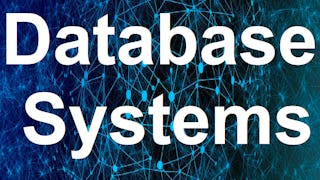This course introduces foundational concepts in business information systems. It presents essential components of data systems, how data systems are used in business, and the roles and responsibilities of people who work within information systems.

Gain next-level skills with Coursera Plus for $199 (regularly $399). Save now.

Foundations of Information Systems for Business
This course is part of Introduction to Information Systems for Business Specialization


Instructors: Carlos Buskey
5,053 already enrolled
Included with
(63 reviews)
What you'll learn
Explain key concepts and frameworks in information systems and cloud computing.
Identify and apply different business applications to solve problems in different business domains.
Skills you'll gain
- Information Systems
- Systems Analysis
- Information Technology
- Business Process Management
- Business Software
- Data Warehousing
- Business Systems
- Data Security
- Operating Systems
- Security Management
- Networking Hardware
- Disaster Recovery
- E-Commerce
- Customer Relationship Management
- Business Technologies
- Enterprise Resource Planning
- Computer Hardware
- Business-To-Consumer
- Management Information Systems
- Business Ethics
Details to know

Add to your LinkedIn profile
See how employees at top companies are mastering in-demand skills

Build your subject-matter expertise
- Learn new concepts from industry experts
- Gain a foundational understanding of a subject or tool
- Develop job-relevant skills with hands-on projects
- Earn a shareable career certificate

There are 4 modules in this course
This module establishes the importance of information systems for businesses. It explores basic concepts in information systems, including roles and responsibilities. It also discusses data, information system technologies, and information technology. Finally, it provides a foundation for applying these concepts to develop an IS-related initiative for a business problem.
What's included
11 videos1 reading4 assignments4 discussion prompts
This module describes basic hardware and software components, as well as the essential networking and hardware businesses use to support and secure their information systems. It provides an overview of operating systems, data warehousing, and network systems.
What's included
12 videos6 assignments4 discussion prompts
This module introduces business applications and explains how they support e-commerce. It describes the use of ERPs, CRMs. and supply management systems. Finally it establishes a foundation for analyzing the use of e-business systems.
What's included
5 videos4 assignments1 discussion prompt
This module introduces IT strategies and ethical challenges in information systems. It covers the SDLC and MIS models, as well as the concept of fault tolerance. It provides an overview to prepare you for applying strategies and design to address an ethical and security challenge.
What's included
6 videos3 assignments1 peer review1 discussion prompt
Earn a career certificate
Add this credential to your LinkedIn profile, resume, or CV. Share it on social media and in your performance review.
Offered by
Explore more from Data Management

Coursera
 Status: Free Trial
Status: Free TrialNortheastern University
 Status: Free Trial
Status: Free Trial Status: Free Trial
Status: Free TrialBoard Infinity
Why people choose Coursera for their career




Learner reviews
63 reviews
- 5 stars
79.36%
- 4 stars
15.87%
- 3 stars
4.76%
- 2 stars
0%
- 1 star
0%
Showing 3 of 63
Reviewed on Nov 21, 2024
I'm really so tired after complete this course but i know that it is deserves❤️

Open new doors with Coursera Plus
Unlimited access to 10,000+ world-class courses, hands-on projects, and job-ready certificate programs - all included in your subscription
Advance your career with an online degree
Earn a degree from world-class universities - 100% online
Join over 3,400 global companies that choose Coursera for Business
Upskill your employees to excel in the digital economy
Frequently asked questions
To access the course materials, assignments and to earn a Certificate, you will need to purchase the Certificate experience when you enroll in a course. You can try a Free Trial instead, or apply for Financial Aid. The course may offer 'Full Course, No Certificate' instead. This option lets you see all course materials, submit required assessments, and get a final grade. This also means that you will not be able to purchase a Certificate experience.
When you enroll in the course, you get access to all of the courses in the Specialization, and you earn a certificate when you complete the work. Your electronic Certificate will be added to your Accomplishments page - from there, you can print your Certificate or add it to your LinkedIn profile.
Yes. In select learning programs, you can apply for financial aid or a scholarship if you can’t afford the enrollment fee. If fin aid or scholarship is available for your learning program selection, you’ll find a link to apply on the description page.
More questions
Financial aid available,
¹ Some assignments in this course are AI-graded. For these assignments, your data will be used in accordance with Coursera's Privacy Notice.

